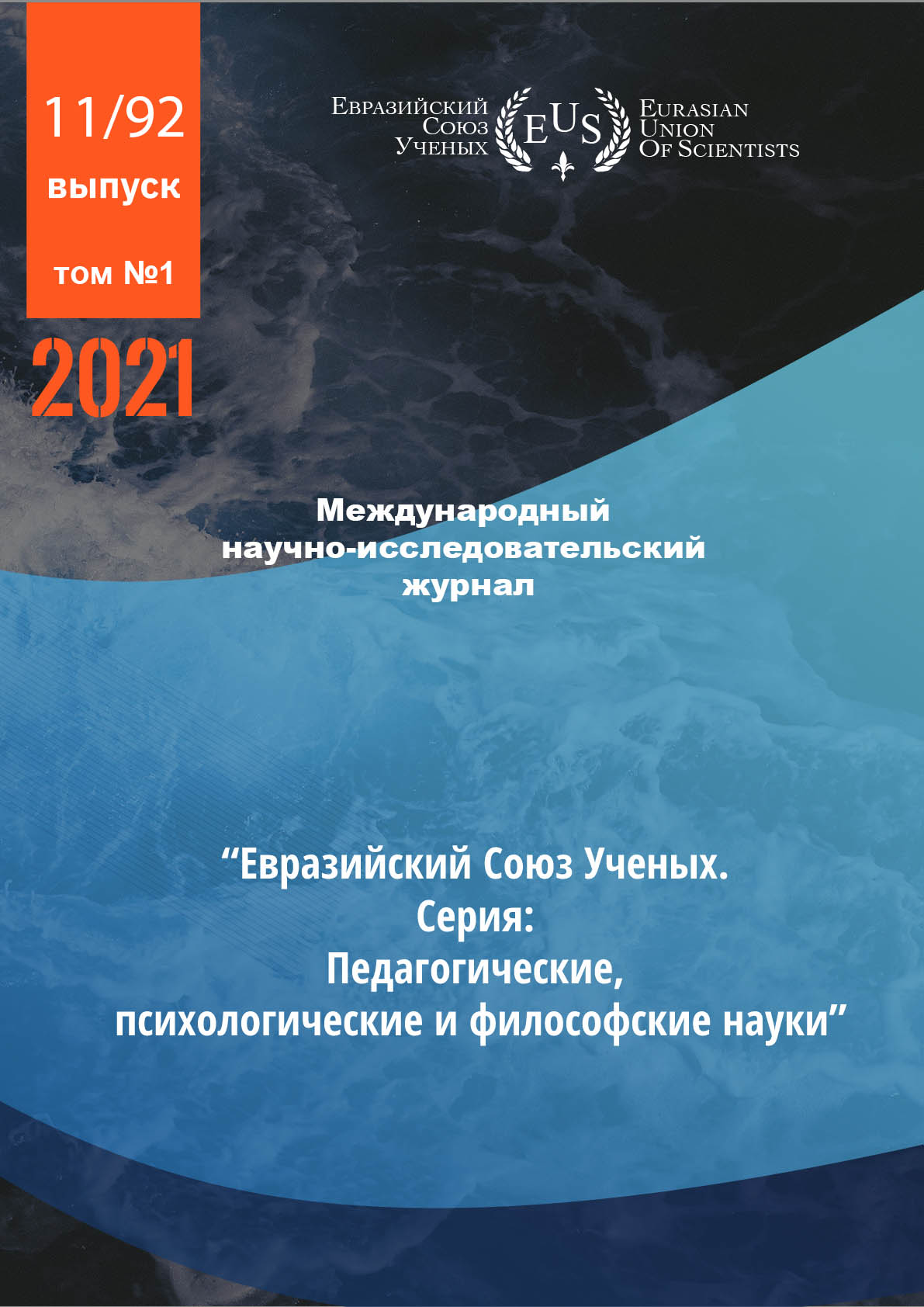MEANING OF LIFE AS THE BASIS FOR THE CONSTRUCTION OF AT THE AGE OF ADULTHOOD
Abstract
The aim of the study was to explore the relationship between the meaningfulness of life and the career plans of an individual in the professional and family spheres at the age stage of emerging adulthood. A family career represents a sequential change in conventional family role positions and the development of relevant competencies in accordance with the life cycle of the family and self-determination of the individual. We used the test of meaningful life orientations and the author's questionnaire of family and professional careers. The sample consisted of 167 students aged 17-22. The results allowed us to identify three groups of respondents, differing in the level of meaningfulness of life. It was found that a high level of life meaningfulness is combined with a certainty of career plans in the sphere of family and profession and a high level of their consistency. Respondents with a low level of meaningfulness in life are characterized by an insufficient balance of professional and family career plans. Orientation towards a professional career with insufficient attention to life plans in the family sphere is combined with an external locus of control.
References
Ginzburg M.R. Lichnostnoe samoopredelenie kak psihologicheskaya problema // Voprosy psihologii. 1988. № 2. S. 19-26. [Ginzburg MR, Personal self-determination as a psychological problem. Voprosy psihologii. 1988; (2): 19-26 (In Russ.)]
Leontev D.A. Test smyslozhiznennyh orientacij (SZhO). M.: Smysl, 2000. - 18 s. [Leont'ev D.A. The Meaning-Based Orientation Test (SZhO). M.: Smysl, 2000. (In Russ.)]
Lichnostnyj potencial: struktura i diagnostika / pod red. Leonteva D.A. M.: Smysl, 2011.- 680 s. [Personal Potential: Structure and Diagnosis / Pod red. Leont'eva DA. M.: Smysl, 2011. (In Russ.)]
Markin V.N. Determinanty formirovaniya individualnoj karernoj strategii // Socialnaya psihologiya i obshestvo. 2011. T. 2. № 4. S. 27–49. [Markin VN, Determinants of the formation of an individual career strategy. Social psychology and society. 2011; (4): 27–49 (In Russ.)]
Pryazhnikova E.Yu., Egorenko T.A. Problema professionalnogo stanovleniya lichnosti // Sovremennaya zarubezhnaya psihologiya. 2012. T. 1. № 2. S. 111–122. [Pryazhnikova EYu, Egorenko TA, Problem of professional personality formation. Journal of Modern Foreign Psychology. 2012; (2): 111–122 (In Russ.)]
Datan N., Ginsberg L.H. (ed.) Life-Span Developmental Psychology: Normative Life Crises. Amsterdam, 2013. 321 p.
Erikson E.H. The Life Cycle Completed. N. Y. / London, 1982. 108 p.
Martsinkovskaya T. The Dynamics Of Identity In The Information And Transitive Space //European Proceedings of Social and Behavioural Sciences,
Future Academy (online). 2019. № 114. P. 356-364.
Savickas M.L., Nota L., Rossier J. [et al.] Life designing: A paradigm for career construction in the 21st century // Journal of Vocational Behavior. 2009. Vol. 75. Iss. 3. P. 239–250. https://doi.org/10.1016/j.jvb.2009.04.004.
Super D. A life-span, life-space approach to career development//Journal of Vocational Behavior. 1980. Vol.16. Iss. 3. P. 282-298. https://doi.org/10.1016/0001-8791(80)90056-1
CC BY-ND
A work licensed in this way allows the following:
1. The freedom to use and perform the work: The licensee must be allowed to make any use, private or public, of the work.
2. The freedom to study the work and apply the information: The licensee must be allowed to examine the work and to use the knowledge gained from the work in any way. The license may not, for example, restrict "reverse engineering."
2. The freedom to redistribute copies: Copies may be sold, swapped or given away for free, in the same form as the original.





